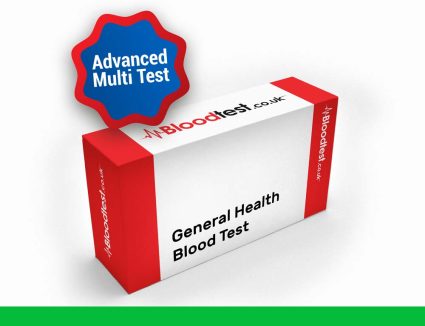Discover the Comprehensive Advantages of a Detailed General Health Blood Test
Explore the Purpose and Impact of Blood Tests on Your Health

A general health blood test in Deal is an essential diagnostic resource that offers invaluable insights into your overall health and plays a crucial role in the early identification of potential health complications. These tests scrutinise a variety of biomarkers found in your bloodstream, providing critical information about how your body functions. By thoroughly analysing these markers, healthcare experts can evaluate your current health status, track changes over time, and initiate timely health interventions when necessary. This proactive approach not only enhances individual health but also significantly contributes to community wellness by pinpointing at-risk groups for serious health issues, thereby improving public health outcomes overall.
The importance of a general health blood test extends beyond basic diagnostics; it embodies a key component of preventative healthcare. Regular testing can uncover hidden health conditions like diabetes, high cholesterol, and liver dysfunction, facilitating early intervention and effective management strategies. Early detection is particularly vital in the UK, where the prevalence of lifestyle-related diseases is increasing. By establishing a clear understanding of your health baseline, you empower yourself to make educated lifestyle choices that can promote a longer and healthier life.
Prefer an Audio Experience? Listen to Our Comprehensive Guide
 Essential Tests Included in a Comprehensive General Health Blood Test
Essential Tests Included in a Comprehensive General Health Blood Test
A standard general health blood test in Deal consists of various crucial tests, each designed to focus on specific aspects of your health. The full blood count (FBC) often serves as the foundation of these assessments, measuring vital components such as red blood cells, white blood cells, and platelets. This test is indispensable for identifying conditions like anaemia or infections, offering a detailed overview of your body’s capacity to operate effectively and respond adequately to health challenges.
In addition to the FBC, lipid profiles are essential for evaluating cardiovascular health. This analysis measures cholesterol levels, including LDL (low-density lipoprotein), HDL (high-density lipoprotein), and triglycerides. Elevated cholesterol levels can indicate an increased risk of heart disease, prompting necessary lifestyle changes or medical interventions to prevent future complications.
Another critical component of a general health blood test is the liver function tests (LFTs), which assess liver health by examining specific enzymes, proteins, and substances produced by the liver. Abnormal results can indicate liver disease, alcohol-related damage, or other underlying health issues requiring prompt medical attention.
Moreover, monitoring glucose levels is a common part of these evaluations to screen for diabetes or prediabetes, providing vital insights into your metabolic health. By incorporating a diverse array of tests, a general health blood test in Deal offers a comprehensive perspective on your overall health and wellness.
The Vital Importance of Regular Blood Testing for Sustaining Optimal Health
Regular blood testing is crucial for maintaining optimal health, particularly for individuals with existing health conditions. In Deal, adopting a proactive approach to your health through routine blood tests can help detect changes that may signal potential health risks. Early detection is essential; many health conditions can be effectively managed if identified at an early stage.
Additionally, these tests provide valuable benchmarks for tracking health improvements over time. They can offer insights into the effects of lifestyle changes or medical treatments you may be undergoing. For example, if you have recently adopted a healthier diet or increased your physical activity levels, regular testing can indicate improved cholesterol levels or blood sugar control, reinforcing positive behaviours and inspiring further enhancements.
Healthcare professionals in Deal recommend that adults undergo general health blood tests at least once a year. However, the frequency of these tests may need to be adjusted based on individual health requirements or risk factors, such as family history or lifestyle choices. By prioritising regular blood tests, you equip yourself with the knowledge and tools necessary to proactively manage your health, leading to a more vibrant and fulfilling life.
Finding a Trustworthy General Health Blood Test Provider in Deal

Engaging with Local Clinics and General Practitioners for Blood Testing Services
In Deal, numerous local clinics and general practitioners (GPs) provide essential services for general health blood tests. These healthcare facilities often act as the first point of contact for residents seeking health assessments. Many GPs incorporate blood tests into routine check-ups, ensuring easy access to these vital services without prolonged wait times.
Consulting your GP not only streamlines a thorough health evaluation but also allows you to address any specific health concerns you may have. The advantage of local clinics lies in their understanding of community health trends, enabling them to offer tailored advice and support. Furthermore, many GPs possess the expertise to interpret your results in detail, clarifying the findings and outlining subsequent steps based on your unique health needs.
Appointments can be conveniently arranged online or via telephone, improving healthcare accessibility in Deal. Many clinics also offer extended hours to cater to busy schedules, ensuring that you do not have to compromise on your health for convenience.
Exploring Private Health Services for Tailored Testing Options
For those seeking a more personalised approach, private health services in Deal provide comprehensive blood testing options customised to individual health requirements. These services often deliver quicker results and more detailed analyses compared to NHS alternatives. The allure of private testing lies in shorter wait times and the possibility of advanced assessments that utilise the latest medical advancements and technologies.
Private clinics may also offer specialised tests that might not be available through the NHS, addressing specific health concerns. For example, if you are interested in genetic testing or advanced metabolic evaluations, private health services can accommodate those requests.
Moreover, patients frequently appreciate the enhanced comfort provided by private facilities, which offer more personalised care and consultations. However, it is crucial to weigh the costs of these services against your health needs and insurance coverage. Many private clinics in Deal maintain transparency regarding their pricing, enabling you to budget effectively for these essential health assessments.
NHS Services for Affordable Access to Blood Testing

The NHS plays a pivotal role in healthcare across the UK, and Deal is no exception in providing essential health services. NHS facilities offer general blood tests as part of their broader commitment to preventative healthcare. Typically, these blood tests require a referral from your GP, ensuring that each test is medically justified and tailored to your specific health concerns.
A significant advantage of NHS blood testing is that it incurs no additional cost to residents, making it an accessible option for everyone. NHS facilities are usually well-equipped and staffed by trained professionals who recognise the importance of accurate testing and the interpretation of results.
However, residents should be aware of the possibility of longer wait times, which may exceed those experienced in private services. Nevertheless, the NHS prioritises urgent cases and those with significant health concerns to ensure timely care. By utilising NHS services, you not only support your health but also contribute to a system that values public health and community well-being.
Utilising Local Pharmacies for Convenient Blood Testing Services
In today’s health-conscious society, pharmacies in Deal have expanded their services to encompass blood testing options. This convenient approach allows residents to obtain essential health evaluations without needing an appointment with their GP. Many local pharmacies employ trained staff capable of conducting basic blood tests, making this a quick and accessible choice for numerous individuals.
Pharmacies typically offer tests for cholesterol, glucose, and other fundamental health markers. Results are generally available on the same day, providing immediate insights into your health status. This rapid turnaround can be particularly beneficial for individuals who may be hesitant to visit a GP or who require prompt health information.
Additionally, pharmacies often create a more relaxed environment for patients, which can be especially advantageous for those who may experience anxiety regarding the testing process. A general health blood test in Deal performed at a pharmacy can be easily integrated into your daily routine, saving you time and effort while providing peace of mind regarding your health.
The Role of Mobile Health Clinics in Improving Community Health
Mobile health clinics have emerged as invaluable resources for residents of Deal, delivering essential health services directly to the community. These clinics frequently visit various locations throughout the town, offering blood tests as part of their services. The flexibility in timing and location makes it easier for many individuals to access important health checks without the need to travel long distances.
These mobile clinics are often part of broader health initiatives designed to increase community awareness and engagement in health matters. You may find them at local events, markets, or community centres, providing convenience for residents who wish to get tested while participating in their daily activities.
The staff at mobile clinics are typically trained health professionals who can offer guidance on the tests performed and explain the significance of your results. By participating in such initiatives, you actively engage in managing your health and contribute to a larger community effort aimed at bettering health outcomes for everyone in Deal.
Essential Preparations for Your Upcoming Blood Test
Understanding Fasting Requirements for Accurate Blood Test Results
Preparing for a general health blood test in Deal often necessitates adhering to specific fasting guidelines, particularly for tests that assess glucose and lipid levels. Fasting generally entails abstaining from all food and drink, except water, for a duration of 8 to 12 hours prior to your test. This preparation is essential, as it ensures the reliability of the test results and provides a clear picture of your body’s health status.
Failing to follow these guidelines may lead to inaccurate outcomes, potentially misleading your healthcare provider in their assessment. For instance, consuming food before a cholesterol test can artificially elevate lipid levels, leading to unnecessary alarm or treatment. Understanding the rationale behind fasting requirements can help you adhere to them and ensure a smooth testing process.
It is advisable to schedule your appointment for early morning to simplify fasting. This way, you can fast overnight and have the test conducted first thing in the morning, allowing you to resume your normal eating habits shortly thereafter. Always confirm instructions with your healthcare provider to ensure you are well-prepared for your upcoming test.
Informing Healthcare Providers About Your Medications and Supplements Prior to Testing
Before undergoing a general health blood test in Deal, it is crucial to inform your healthcare provider about any medications or supplements you are currently taking. Certain substances can interfere with test results, leading to misleading conclusions that may affect your treatment plan. For example, vitamins, herbal supplements, and prescription medications can alter blood chemistry and skew results.
Discussing your current medications enables your healthcare provider to interpret your results accurately. They may recommend pausing specific medications or supplements that could affect your tests for optimal outcomes. This is particularly relevant for blood thinners, hormone treatments, and cholesterol medications, which can significantly influence the results of particular tests.
Furthermore, your healthcare provider can offer personalised advice based on your unique health circumstances, ensuring that your blood test accurately reflects your health status. Taking the time to discuss your current regimen can greatly enhance the accuracy of your test results, ultimately supporting better health outcomes.
What to Expect During the Blood Testing Procedure
Being informed about what to expect when you arrive for your general health blood test in Deal can help alleviate any anxiety. The procedure typically involves a straightforward blood draw, usually taken from a vein in your arm. Trained professionals will perform the test, ensuring a sterile environment and employing techniques to minimise discomfort.
Prior to the test, the healthcare provider will likely explain the procedure, address any questions you may have, and obtain your consent. It’s a simple process that generally takes just a few minutes. While some individuals may feel slight discomfort or a brief sting when the needle is inserted, most find it to be manageable.
After the test, you may be advised to apply pressure to the puncture site to minimise bruising. The collected blood samples will then be sent to a laboratory for analysis. Results are typically available within a few days, depending on the specific tests conducted. Your healthcare provider will subsequently discuss the findings with you, providing invaluable insights into your health status and outlining any necessary next steps in your care.
Effectively Understanding Your Blood Test Results
How to Interpret Normal Ranges for Key Health Indicators
Interpreting the results of your general health blood test in Deal requires a solid understanding of the normal ranges for various health indicators. Due to variations in testing methodologies and equipment, these ranges may differ slightly between laboratories. Typically, your healthcare provider will provide reference ranges alongside your results to help you contextualise them effectively.
For instance, fasting glucose levels generally range between 4.0 and 5.5 mmol/L. Familiarity with these benchmarks enables you to approach your health with clarity. If your results fall within these ranges, it suggests that your body is functioning well regarding that particular marker, indicating overall good health.
However, not all tests yield straightforward interpretations. Some results may be flagged as “high” or “low,” necessitating further investigation. This is where the expertise of your healthcare provider becomes invaluable, as they can clarify what these changes might signify regarding your overall health profile and guide you on the necessary actions.
Deciphering Abnormal Results and Their Potential Implications
Receiving abnormal results from your general health blood test in Deal can be concerning, but it is crucial to remember that these results do not automatically indicate a serious health issue. Various factors, including temporary illness, stress, or dehydration, can influence blood test outcomes and result in abnormal findings.
Abnormal results may signify the need for further investigation. For example, elevated cholesterol levels could suggest potential heart disease, prompting discussions regarding lifestyle changes or medication. Similarly, abnormal liver function tests might indicate liver damage or disease, necessitating follow-up tests to determine the underlying cause and appropriate treatment.
It is essential to discuss any abnormal results with your healthcare provider, who can provide context and recommend subsequent steps. This dialogue allows you to delve deeper into your health, explore potential lifestyle modifications, or consider further diagnostic testing. Addressing these concerns proactively can improve health outcomes and provide peace of mind as you take control of your well-being.
Planning Your Next Steps Following Your Results
Your subsequent actions will largely depend on your findings once you receive your general health blood test results. If your results fall within the normal ranges, your healthcare provider may recommend continuing with routine health checks. Regular monitoring is essential, allowing you to observe health trends and make necessary adjustments.
If results indicate potential health issues, your provider will discuss your options. This may involve lifestyle modifications, such as dietary adjustments or increased physical activity, to manage conditions like high cholesterol or elevated blood sugar levels. In some cases, additional testing may be necessary to clarify your health status or confirm a diagnosis.
Ultimately, actively engaging with your healthcare provider about your results empowers you to take charge of your health. Understanding your results and the recommended next steps is crucial for effective health management. Don’t hesitate to ask questions or seek clarification; your health is paramount, and being informed is key to making empowered decisions regarding your well-being.
Factors That Can Influence Blood Test Outcomes
Several factors can affect the results of your general health blood test in Deal, making it essential to consider these variables during interpretation. Your diet plays a significant role; what you consume before the test can directly impact markers such as glucose and lipid levels. Eating a meal rich in carbohydrates or fats can skew results, underscoring the importance of adhering to fasting requirements.
In addition to dietary habits, medications can also impact test outcomes. Certain drugs may elevate or lower blood markers, necessitating a discussion with your healthcare provider about your current medications. Other factors, such as stress, lack of sleep, and hydration levels, may further complicate test results, as they can cause temporary fluctuations in various blood components.
Being aware of these influencing factors helps you and your healthcare provider interpret your results more accurately. Recognising that your health is a dynamic interplay of numerous variables allows for a more comprehensive view of your well-being, empowering you to make informed decisions moving forward.
The Fundamental Importance of Regular Testing for Ongoing Health
The significance of regular blood testing cannot be overstated, particularly concerning a general health blood test in Deal. Consistent assessments enable you to monitor changes in your health over time, providing invaluable insights into your bodily functions. This continual tracking aids in the early detection and management of potential health issues, such as diabetes or cardiovascular diseases, which might otherwise remain unnoticed until they escalate into serious conditions.
Moreover, regular testing establishes a baseline for your health markers, making it easier to identify any shifts influenced by lifestyle changes or medical conditions. This data is crucial for understanding how your body responds to various interventions, whether dietary adjustments, exercise regimens, or medications.
It’s essential to discuss testing frequency with your healthcare provider—while annual checks may suffice for many, some individuals may require more frequent assessments based on their health history or risk factors. By prioritising regular blood testing, you take a proactive stance on your health, supporting early interventions and informed decision-making for a healthier future.
Evaluating the Cost and Accessibility of Blood Testing in Deal
Comparing Costs Between NHS and Private Blood Testing Services
When considering a general health blood test in Deal, comprehending the cost differences between NHS and private services is vital. NHS blood tests are generally provided at no extra charge for residents, making them an appealing option for many individuals. However, this accessibility may come with longer wait times, which may not meet everyone’s needs, particularly those seeking timely results.
In contrast, private health services in Deal offer quicker access to blood tests, often with additional options that may not be available through the NHS. While private services can be more expensive, the trade-off may be worthwhile for individuals who prioritise speed and convenience in their health evaluations. Prices for private tests can vary significantly, so it’s essential to inquire about costs upfront and carefully evaluate your budget when making decisions.
Weighing the advantages and disadvantages of both options enables you to make an informed choice that aligns with your health needs and financial circumstances. Whether you opt for NHS services or private testing, both pathways play a vital role in supporting your health journey and ensuring you receive necessary evaluations.
Understanding Health Insurance Coverage for Blood Testing
For those considering a general health blood test in Deal, it is wise to verify your health insurance coverage. Some private health insurance plans cover the costs of general health blood tests, making them a more financially viable option for many individuals. Understanding the specifics of your policy can significantly influence your choice between NHS testing or private services.
If you are insured, reviewing your plan details can lead to savings and provide peace of mind when accessing necessary health services. In some cases, your insurance provider may have a network of preferred labs or clinics, which could offer additional benefits or reduced rates for testing.
Communicating with your insurance provider can clarify which tests are covered and any associated costs, ensuring you make informed decisions about your health without unexpected financial burdens.
Ensuring Accessibility for All Age Groups in Blood Testing
A general health blood test in Deal is accessible to individuals across all age groups, highlighting the importance of monitoring health throughout one’s life. Blood tests may be part of routine check-ups or evaluations for specific health concerns for children and adolescents. Healthcare providers are mindful of the unique needs and considerations of younger patients, ensuring a comfortable and supportive experience.
Accessibility can present additional challenges for elderly individuals. Many clinics in Deal offer services specifically tailored for older adults, recognising that mobility issues or chronic conditions may affect their ability to travel for testing. Mobile health clinics can be especially beneficial in this context, delivering essential services directly to their homes.
Overall, Deal’s commitment to making general health blood tests available to all demographics reflects a proactive approach to community health. Encouraging individuals to engage with their health at every stage of life fosters a culture of wellness and preventive care, ultimately enhancing the overall health landscape of the community.
Understanding the Advantages of Regular Blood Testing
Encouraging Early Disease Detection Through Consistent Assessments
Regular blood testing is a cornerstone of preventative healthcare, offering substantial benefits, especially regarding early disease detection. A general blood test in Deal enables healthcare providers to identify conditions such as diabetes, high cholesterol, and liver dysfunction long before symptoms manifest. This early detection is crucial, as many chronic diseases can be effectively managed if caught in their initial stages.
For instance, a routine blood test can reveal elevated glucose levels, prompting timely interventions that can prevent the progression to type 2 diabetes. Similarly, identifying elevated cholesterol levels during a blood test can lead to early lifestyle modifications, significantly reducing cardiovascular risks and improving overall health.
The proactive nature of regular testing empowers individuals to take charge of their health. By identifying potential health issues early, you can collaborate closely with your healthcare provider to develop a personalised care plan that aligns with your health needs and objectives.
Effectively Monitoring Changes in Health Over Time
Another significant advantage of regular blood testing is the ability to effectively monitor changes in health over time. A general health blood test in Deal provides valuable data that assists in tracking fluctuations in various health markers. For individuals with chronic conditions, such as hypertension or diabetes, regular tests are essential for assessing the effectiveness of treatment plans and making necessary adjustments.
Understanding how your body responds to medications, dietary changes, or lifestyle modifications is invaluable for long-term health management. For instance, if you’re on cholesterol-lowering medications, regular tests will indicate whether your treatment is effective, enabling timely adjustments for optimal health.
This ongoing monitoring fosters a proactive approach to health management, allowing for early interventions and better overall health outcomes. Regular blood tests can help keep you well-informed about your health, empowering you to make decisions that support your overall well-being.
Gaining Peace of Mind Through Consistent Health Assessments
One often-overlooked advantage of regular blood testing is the peace of mind it can provide. Knowing your health status through a general blood test in Deal can alleviate anxiety related to uncertainty. Regular testing fosters a sense of control over your health, enabling you to take proactive measures in collaboration with your healthcare provider.
Receiving normal results reassures you about your current health and strengthens your commitment to maintaining a healthy lifestyle. Conversely, if results indicate potential issues, having that information allows you to address them promptly, reducing the stress associated with uncertainty and allowing for timely intervention.
Ultimately, regular blood testing is a foundational element of holistic health management. It empowers you to make informed choices, actively monitor your well-being, and cultivate a long-term approach to health and wellness.
Frequently Asked Questions About General Health Blood Tests
What does a general health blood test encompass?
A general health blood test evaluates an array of markers in your blood to assess overall health and detect potential issues early on. These include full blood counts, lipid profiles, and liver function tests.
How frequently should I have a general health blood test?
It is generally advisable to undergo a general health blood test annually, although individuals with specific health concerns may require more frequent testing as per their healthcare provider’s advice.
Is a referral necessary for an NHS blood test in Deal?
Yes, NHS blood tests typically require a referral from your GP, who will evaluate your health needs and recommend appropriate tests based on your situation.
Are private blood tests more accurate than NHS tests?
Both NHS and private tests are accurate; however, private tests may provide quicker results and a broader range of tests, albeit at a higher cost.
Can I eat before a blood test?
It depends on the test; some require fasting for 8-12 hours for accurate results, while others do not. Always follow your healthcare provider’s instructions regarding fasting.
What should I bring to my blood test appointment?
Please bring any relevant health information, details of medications you are currently taking, and your NHS number if applicable. A valid ID may also be required for private tests.
How long does it typically take to receive blood test results?
Results from a general health blood test are usually available within a few days; however, this timeframe may vary depending on the specific tests performed and the laboratory used.
What should I do if my test results are abnormal?
Abnormal results do not always indicate a serious health issue. It is essential to discuss your results with your healthcare provider for proper interpretation and recommendations on subsequent steps.
What factors can influence my blood test results?
Diet, medications, hydration levels, stress, and the timing of the test can all affect blood test results. It’s crucial to disclose all relevant information to your healthcare provider for accurate interpretation.
Are blood tests safe to undergo?
Yes, blood tests are generally safe and involve minimal risks. Most individuals experience slight discomfort during the blood draw, and serious complications are rare.
Connect with us on Facebook!
This Article Was First Found On https://bloodtest.co.uk
The Article: General Health Blood Test: A Comprehensive Guide for Deal Residents appeared first on: https://ezbloodtest.com
The Article Blood Test for General Health: A Complete Guide for Deal Residents Was Found On https://limitsofstrategy.com
References:
Blood Test for General Health: A Complete Guide for Deal Residents
Blood Test for General Health: Essential Guide for Deal Locals



